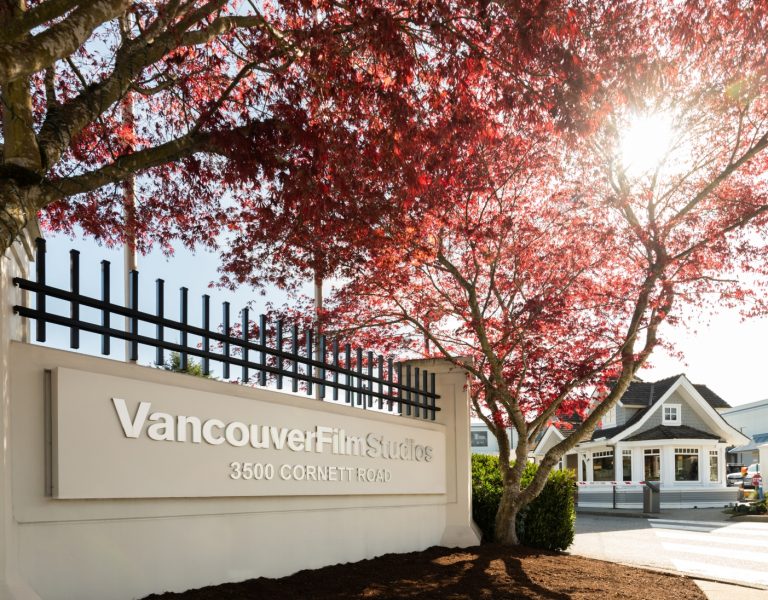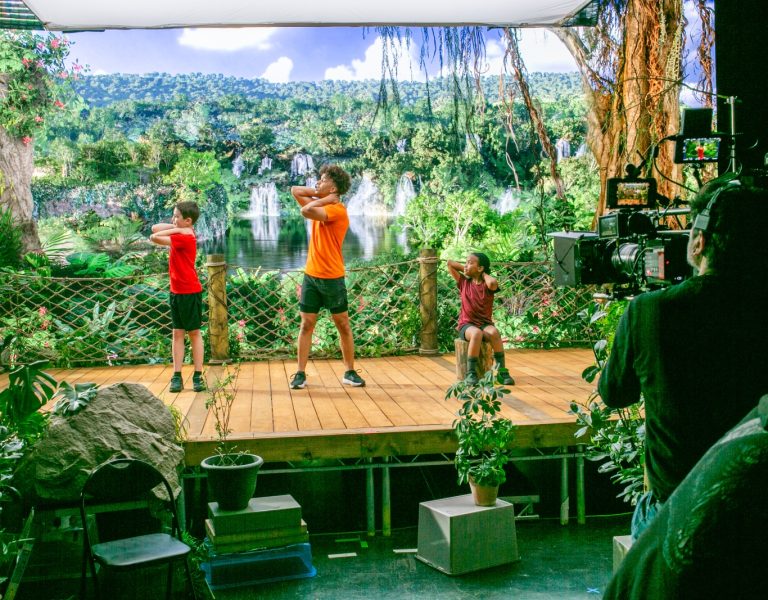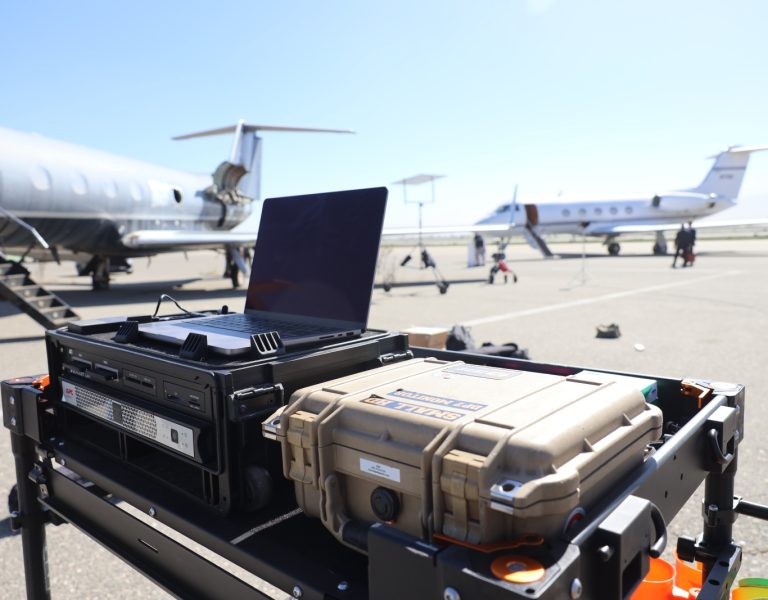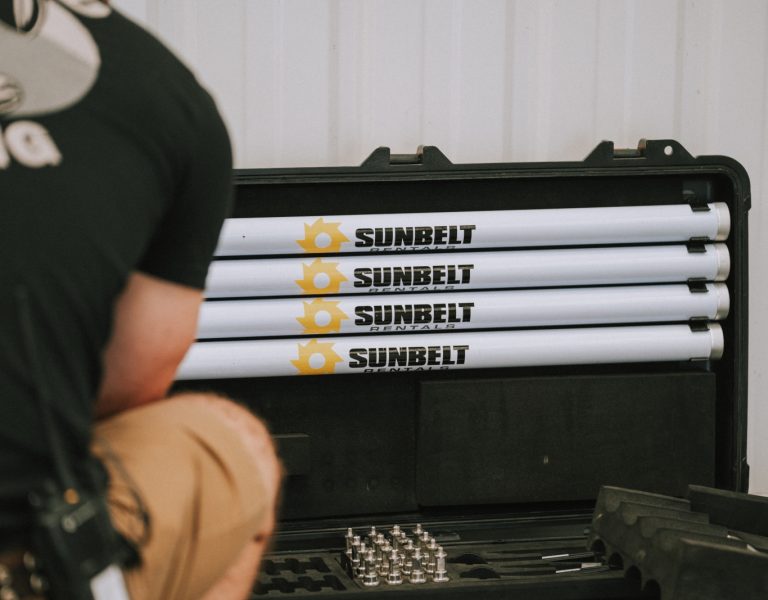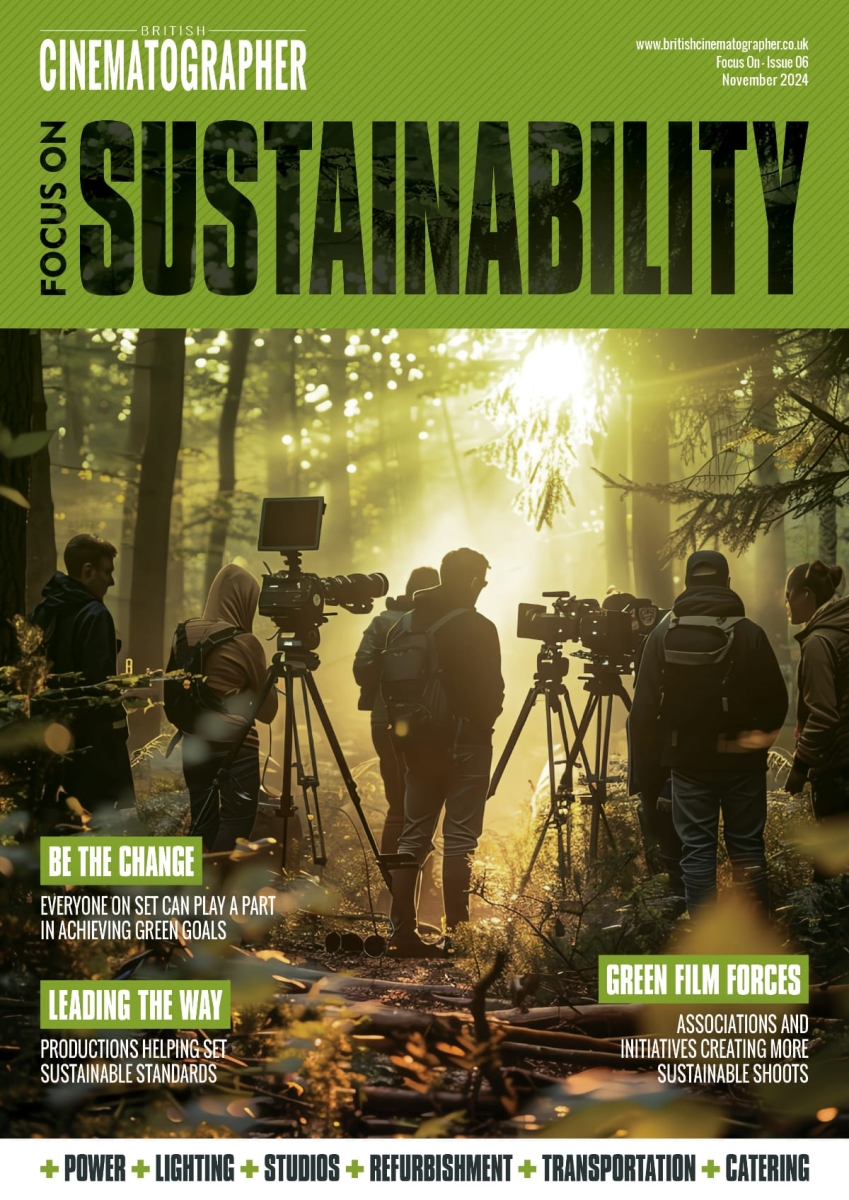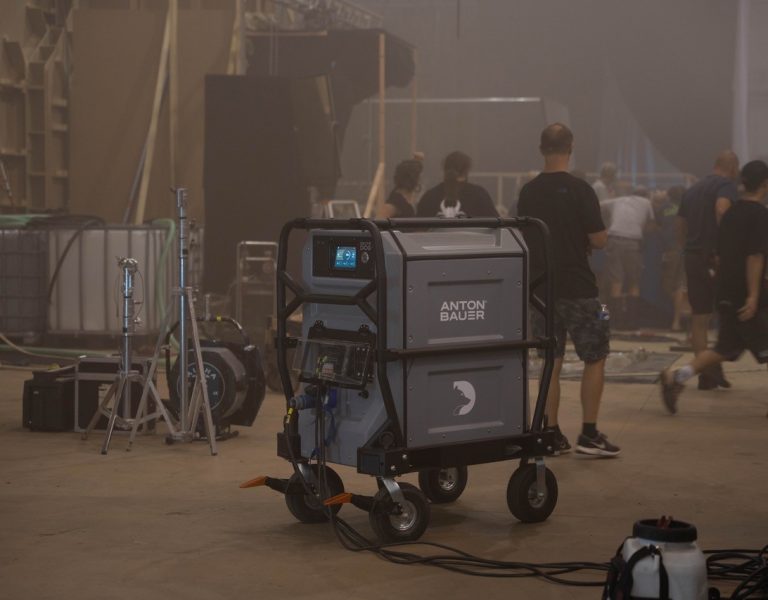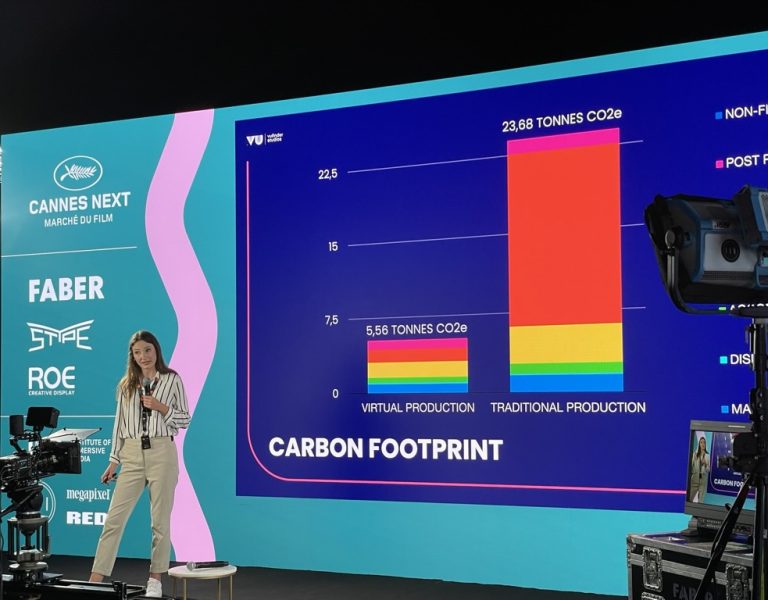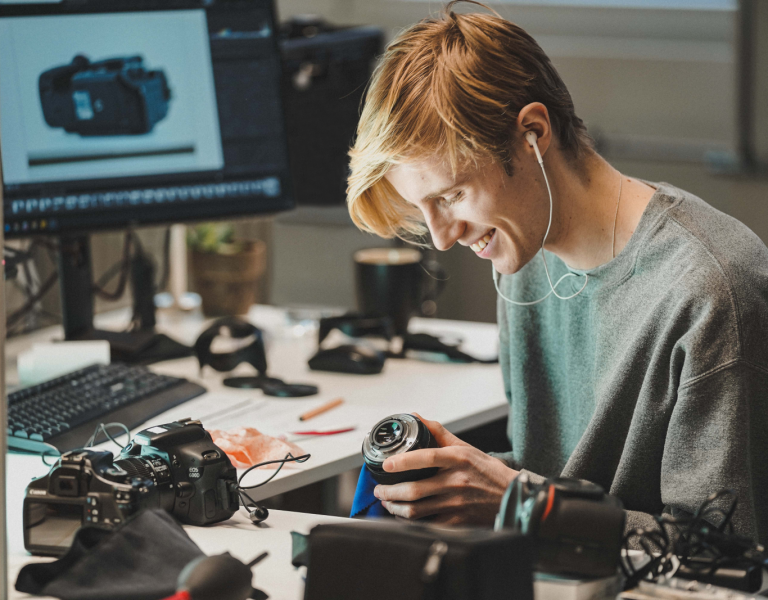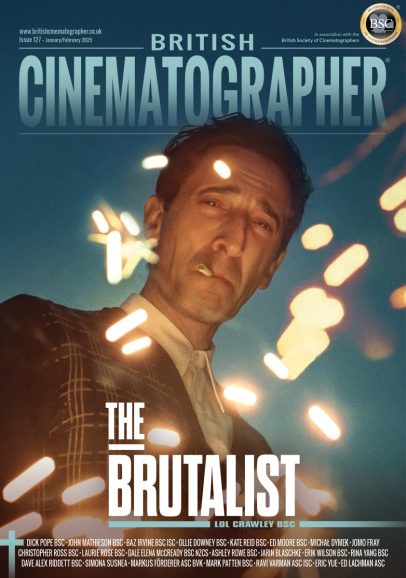Cinematographer and director Hugo Boué outlines why working with portable power station with a rechargeable battery, Aputure DELTA Pro, was essential for his recent productions.
When you’re thinking about sustainability on set, the last thing that comes to mind is having a diesel generator running in the background. Fact of the matter is though, that if electricity is not available because of the remote location of your shoot for example, you used to not have any other choice. Without power there is no sound, the camera stops working and your lights will stay dark. Now though, there is an alternative in the form of a portable power station with a rechargeable battery. Cue the Aputure DELTA Pro, powered by EcoFlow.
Imagine constructing a wooden barn in the middle of a field, with the plan to shoot several scenes over the course of a few days, including some important flashbacks and even a crucial pyrotechnics scene, only to realise that getting power there wasn’t going to be possible. You would be gutted.
“Without the Aputure DELTA Pro we wouldn’t have been able to shoot a single scene in that barn in the middle of a field”, explains director and cinematographer Hugo Boué. “Not only the lights, but also the sound equipment and the camera batteries were powered by the DELTA Pro. And let’s not forget the fog machine!”
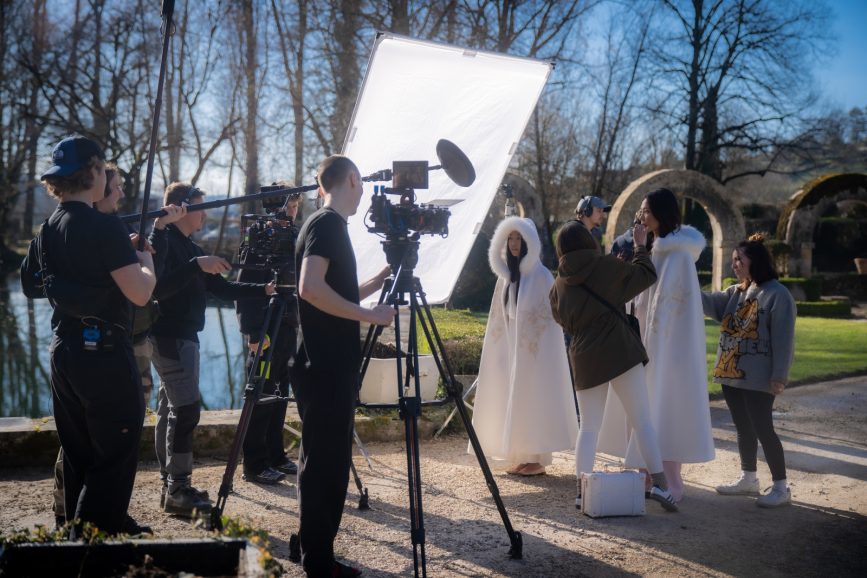
For Boué, who with his company Spirit Production usually focuses on producing and making high-end cinematic advertising films and premium corporate films, having the DELTA Pro was a must when working on his first short film Rose de Chine (Rose from China), starring Sunny Wong, Arnaud Cance, and Chinese actress Xin Wang among a host of other French actors.
The 3600Wh portable battery in the DELTA Pro allows you to power an LS 1200d Pro for two hours at max output, but you can also choose to run up to five LS 600d Pros at the same time, for example, as it has enough power outlets. “Because of this it lasted us for a full day of shooting”, says Boué, “which allowed us to charge it overnight. But even if we were shooting both day and night, we could recharge the DELTA Pro completely within three hours and it was ready to go again.”
One of the most important things for Boué though, is the fact that opposite to a diesel generator, the DELTA Pro is completely silent. “The sound department was close to the wooden barn but could stay completely in sync because there was no background noise. This really improved the workflow, together with the fact that we didn’t have over 300 metres of electric cable laying around.” Because of both cost and carbon footprint, Boué wouldn’t have gone for a diesel generator anyway, but the ease of use and transport together with the manageability through the EcoFlow app made the DELTA Pro a logical choice for him. “We like a clean workspace and will always look for the most sustainable approach. When working with a team you need to be organised and keep things tidy, including the necessities like power supply. So my gaffer wouldn’t have accepted anything else”, Boué laughs.
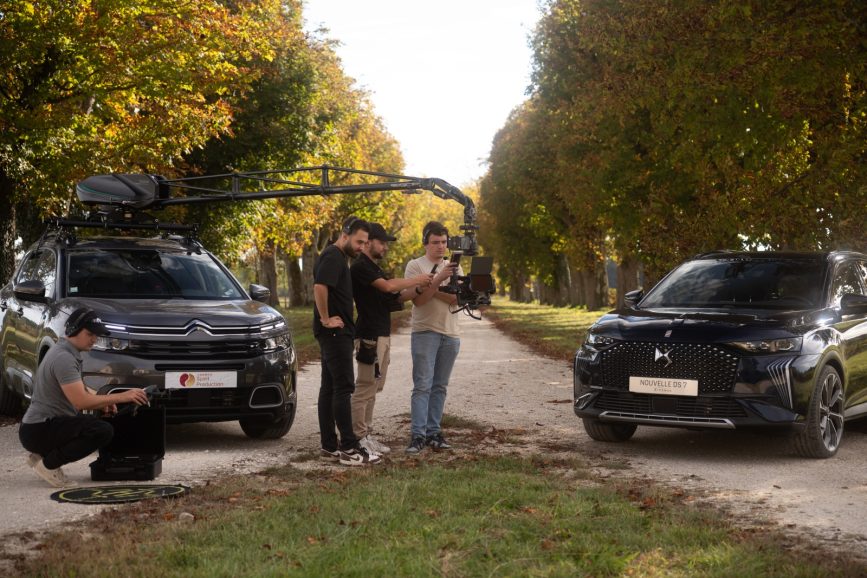
Multi-purpose
It wasn’t the first time using the DELTA Pro for Boué though, as he previously shot a car commercial using the battery for a completely different purpose. “We shot that commercial in a French château, very fancy and luxurious. We therefore couldn’t be roughing up the place and had to power both the crane on the back of the car as well as the fog machine internally. The DELTA Pro was perfect for that purpose, as it fitted easily in the back of our camera car.”
In this instance, Boué also made use of the possibility to charge up the DELTA Pro with solar power, making it an even more sustainable option. “To be honest, that’s the reason I also take it when I go camping”, he admits. “The multiple USB-A and USB-C ports are of course perfect to charge our phones and other devices, but it also means I can work remotely and not have to worry about running out of power.”
While camping Boué also used the DELTA Pro to project movies on a white sheet, which in turn gave his creative mind another idea for professional use of the power station. “We want to be able to show Rose de Chine everywhere, from international film festivals to local screenings. With the DELTA Pro this is actually possible, as we’re not reliant on anybody else to organise the power.”
For Boué taking the DELTA Pro on basically any (outdoor) shoot is a no-brainer. “Whether I need it because there is no electricity at all or require that extra power push, it always comes in handy. Next to that it’s an emergency backup power supply in case of an outage, which is a great confidence booster.” His only regret at this stage is that he only has one DELTA Pro. Boué continues: “If I want to turn Rose de Chine into a feature film, I will need multiple units to power what I intend to shoot. I’ll install solar panels and have a continuous, eco-friendly and sustainable source of power. That would be great.”
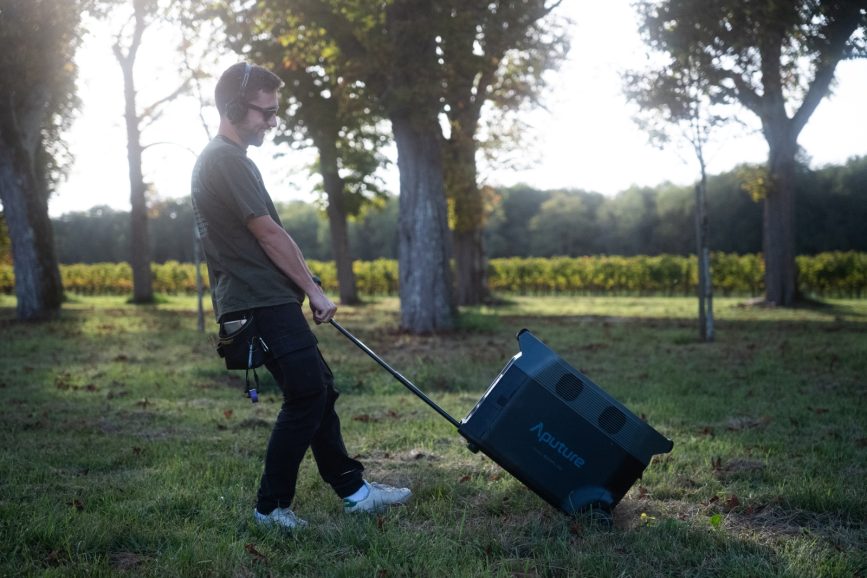
Sustainable alternatives
As cinematographers get more eco-conscious, it’s only logical that manufacturers of filmmaking equipment offer more options for working sustainably. As a leading LED lighting manufacturer, Aputure understands how its innovations can assist in achieving this goal. What started with not allowing diesel generators on set to power their fixtures anymore, has led to more environmentally aware productions and brands requesting both HMI and tungsten lights to be replaced by modern LEDs, as a more sustainable and environmentally friendly alternative. They offer more output – lumens per watt – while using less power.
An important aspect to consider is that until recently LED fixtures weren’t on the same level as HMI or tungsten lights. This is no longer the case. Over the last few years Aputure’s technological advancements in products like the Electro Storm CS15 and the all-new STORM 1200x, which features the BLAIR light engine, have given filmmakers a competitive product that’s also environmentally conscious. Those fixtures are able to mimic the qualities of real daylight and when driven by a – preferably solar fed – battery power station like the DELTA Pro, the goal of zero emissions on set can become a reality.
Aputure continues to look for more ways to increase the value of their products while making them more sustainable. One way this applies to future products is through modular subassemblies, allowing for easier repair and maintenance. This approach will also lengthen their lifespan and as they don’t require component-level repairs, they deliver increased workable hours across the lifetime of their use.
–
Watch the DELTA Pro introduction video:
For more information about DELTA Pro
Watch the trailer of Rose de Chine:













